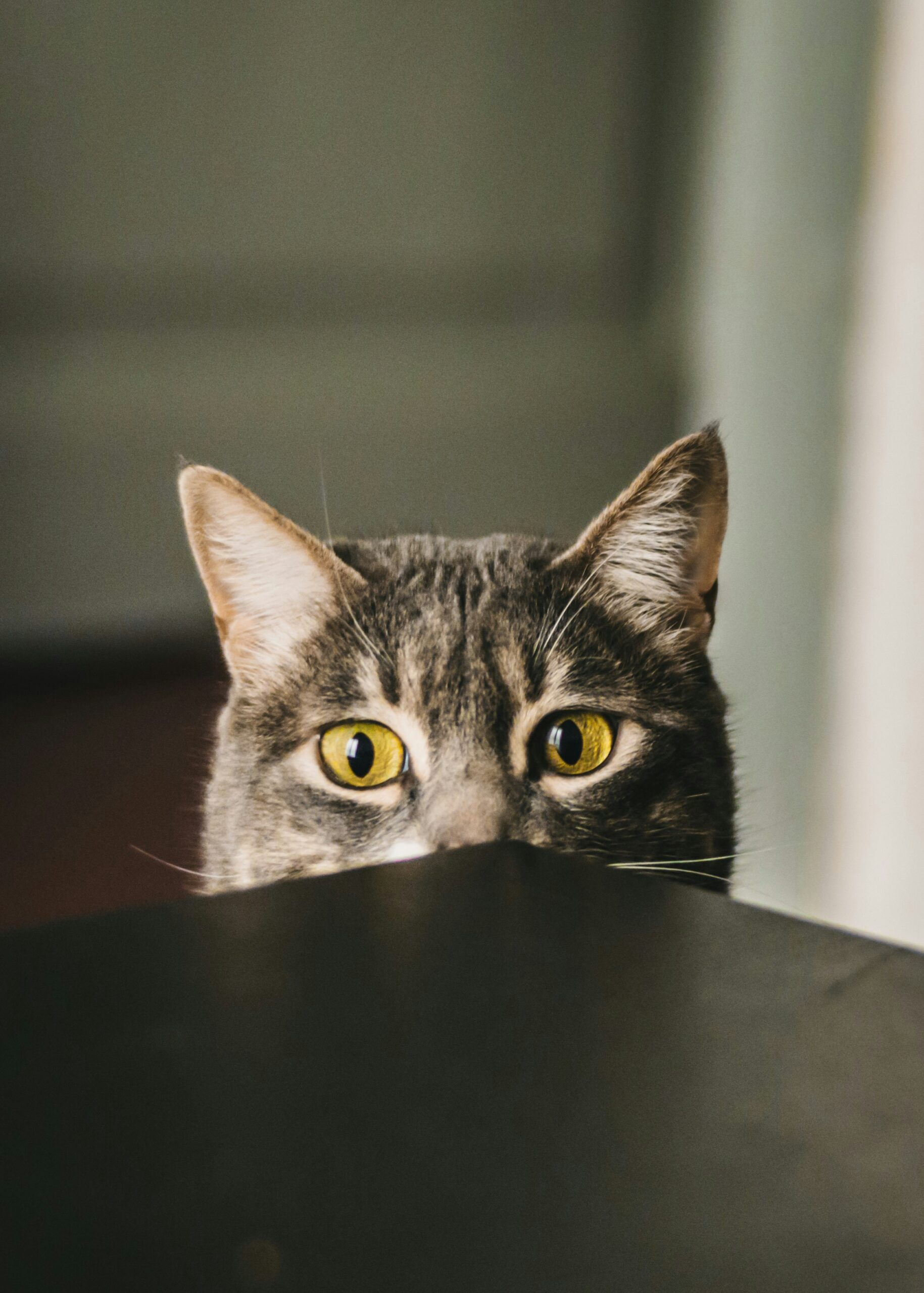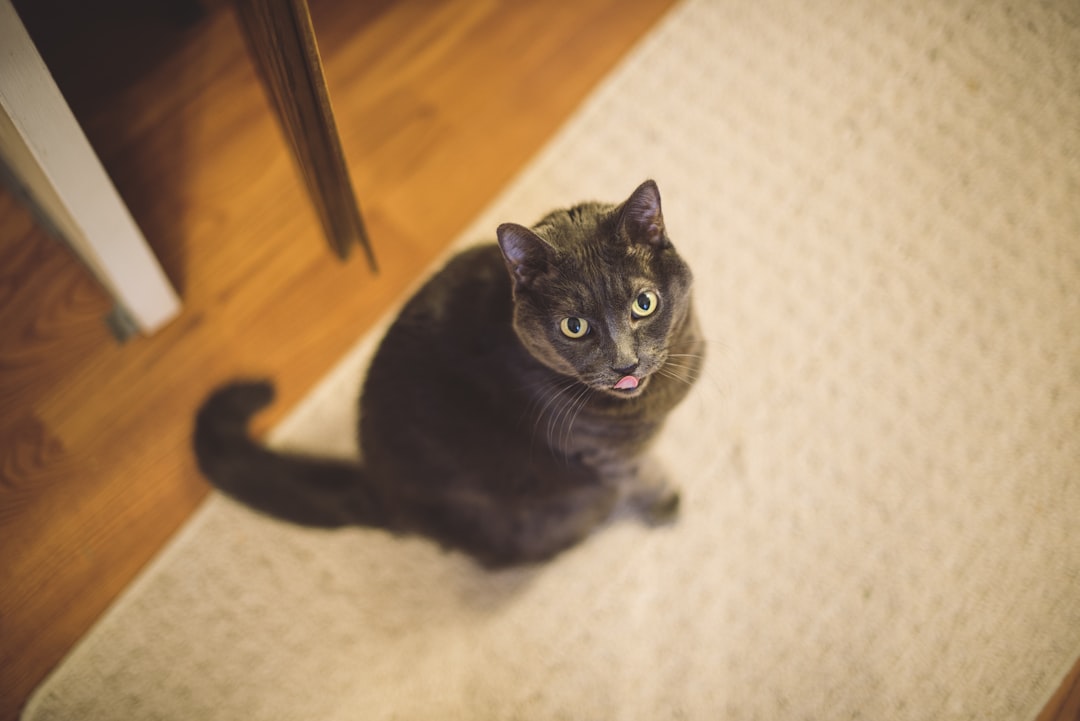Heavy breathing in cats can be concerning for pet owners, as it often signals underlying health issues. Understanding the nuances of normal cat breathing compared to heavy breathing is crucial for ensuring your feline friend’s well-being. This blog post explores the common causes and signs of cat breathing difficulties, delving into factors such as respiratory infections, heart problems, and environmental triggers. By identifying these issues early, you can take the necessary steps to support your cat’s health and happiness. Stay informed to help your pet breathe easy.
Understanding Normal Cat Breathing Patterns
To grasp the nuances of cat breathing, it’s essential to recognize what constitutes a normal pattern. Generally, a resting cat breathes between 20 to 30 breaths per minute. Factors like age, size, and activity level can influence these rates. Here’s a quick breakdown:
- Kittens: 24 to 40 breaths per minute
- Adult Cats: 20 to 30 breaths per minute
- Senior Cats: 18 to 30 breaths per minute
Key Characteristics of Normal Cat Breathing:
- Quiet and Steady: Breaths should be barely noticeable.
- Nasal Breathing: Cats primarily breathe through their noses, not their mouths.
- Relaxed Body Language: A calm cat maintains a relaxed posture when breathing.
Important Tips:
- Monitor regularly: Keep an eye on your cat’s breathing patterns, especially during playtime or rest.
- Note Changes: Any significant increase in breathing rate or audible wheezing warrants attention.
Understanding these normal patterns is critical for identifying potential issues with cat breathing. Keeping an eye on your feline friend’s respiration not only ensures their well-being but also promotes a happier, healthier life.
Common Signs of Heavy Breathing in Cats
Recognizing the signs of heavy cat breathing is crucial for your pet’s health. When a cat experiences difficulty breathing, it may exhibit several noticeable symptoms. Here are some common signs to watch for:
- Increased respiratory rate: Normal cat breathing should range from 20 to 30 breaths per minute. If you observe more than 30 breaths, it signals a potential issue.
- Open-mouth breathing: Unlike dogs, cats typically breathe through their noses. Open-mouth breathing indicates distress or respiratory problems.
- Labored or shallow breathing: If your cat’s breaths seem forced or shallow, this could point to underlying health concerns.
- Coughing or wheezing: A cat experiencing respiratory discomfort may cough or wheeze during breathing.
- Behavioral changes: Heavy cat breathing can lead to lethargy, hiding, or decreased appetite, signaling your cat’s discomfort.
In conclusion, consistently monitoring your cat’s breathing is vital. If you notice any of these symptoms, seek veterinary assistance promptly, as heavy cat breathing may signify serious health issues that require immediate attention.
Potential Health Issues Behind Heavy Breathing
Heavy breathing in cats can signal various underlying health issues. Understanding these conditions is crucial for ensuring your feline’s well-being. Here are some potential health problems that can affect cat breathing:
Respiratory Infections: Bacterial or viral infections can lead to inflammation, resulting in labored breathing.
Heart Disease: Conditions like cardiomyopathy can cause fluid buildup in the lungs, making it difficult for your cat to breathe.
Asthma: Feline asthma can result in chronic wheezing and heavy breathing due to narrowed airways.
Obesity: Extra weight can strain the lungs and heart, leading to difficulty in cat breathing.
Pleural Effusion: Fluid accumulation in the chest cavity can restrict lung expansion, causing significant breathing challenges.
Tumors: Chest tumors can obstruct airways or compress lungs, leading to heavy cat breathing.
If you observe any signs of labored breathing in your cat, consult a veterinarian promptly. Early diagnosis can greatly enhance treatment outcomes and improve your cat’s quality of life.
The Role of Stress and Anxiety in Cat Breathing
Stress and anxiety can significantly influence cat breathing patterns. When a cat feels threatened or anxious, its body reacts by preparing for a "fight or flight" response, often leading to rapid and shallow breathing. Here’s how stress affects your cat’s respiratory system:
- Increased Heart Rate: Stress triggers an increased heart rate, causing quicker breaths.
- Hyperventilation: Cats may hyperventilate when anxious, which can lead to observable heavy breathing.
- Potential Triggers: Changes in environment, loud noises, or the presence of unfamiliar animals often provoke stress.
Signs to Watch For
Pay attention to these common indicators of stress-related cat breathing:
- Panting or rapid breathing
- Hiding or avoidance behavior
- Excessive grooming or vocalization
Comparison of Normal vs. Stressed Breathing
| Breathing Type | Characteristics | Normal Breathing | Anxious Breathing |
|---|---|---|---|
| Rate | Breathes per minute | 20-30 breaths | 30+ breaths |
| Depth | Depth of each breath | Deep and relaxed | Shallow and shallow |
Recognizing these signs can help you manage your cat’s environment, reducing stress and promoting healthier cat breathing. If anxiety persists, consider consulting a veterinarian for further assistance.
Identifying Respiratory Infections in Cats
Identifying respiratory infections in cats is crucial for their health and well-being. When considering cat breathing, be aware that infections can lead to significant respiratory distress. Here are some key signs to look out for:
- Coughing: Frequent or severe coughing may indicate irritation or infection.
- Wheezing: A whistling sound during breathing can be a sign of obstruction.
- Nasal discharge: Mucus coming from the nose can signal inflammation or infection.
- Sneezing: Frequent sneezing often accompanies respiratory illnesses.
- Lethargy: A commonly overlooked sign, lethargy can indicate your cat isn’t feeling well.
- Loss of appetite: If your cat is eating less or has stopped eating altogether, it’s a red flag.
| Symptoms | Normal Cat Breathing | Infected Cat Breathing |
|---|---|---|
| Breathing Rate | 20-30 breaths per minute | Increased rate over 30 breaths |
| Sound | Quiet and regular | Wheezing or labored breathing |
| Behavior | Playful and active | Lethargic or hiding |
If you notice any of these symptoms alongside abnormal cat breathing, consult your veterinarian promptly to ensure your furry friend receives the appropriate care. Early intervention can make all the difference in recovery!
Heart Problems and Their Impact on Breathing
Heart problems significantly affect cat breathing, often reducing the efficiency of oxygen circulation. When a cat’s heart struggles to pump blood, it can lead to various respiratory issues. Here are some common heart conditions and their symptoms:
Congestive Heart Failure: Fluid accumulates in the lungs, causing:
- Heavy or labored breathing
- Coughing
- Shortness of breath, especially when exerting energy
Hypertrophic Cardiomyopathy (HCM): This genetic condition thickens heart muscles, leading to:
- Rapid or shallow cat breathing
- Weakness or lethargy
- Fainting spells
Comparison of Heart Conditions and Symptoms
| Condition | Heavy Breathing | Coughing | Lethargy |
|---|---|---|---|
| Congestive Heart Failure | Yes | Yes | Yes |
| Hypertrophic Cardiomyopathy | Yes | No | Yes |
If you notice abnormal cat breathing patterns, especially alongside other signs of distress like lethargy or coughing, consult a veterinarian immediately. Prompt intervention can significantly improve your cat’s health and quality of life.
The Effect of Obesity on Cat Breathing
Obesity significantly impacts cat breathing, leading to various health complications. Here’s how:
- Increased Pressure: Excess weight puts pressure on the chest and diaphragm, limiting lung expansion.
- Reduced Airflow: Fatty tissues in the thoracic cavity can obstruct airflow, making it harder for your cat to breathe comfortably.
- Risk of Sleep Apnea: Obesity raises the likelihood of sleep apnea in cats, further disrupting normal cat breathing patterns.
Comparison of Breathing Patterns
| Weight Status | Breathing Rate (breaths/min) | Breathing Difficulty |
|---|---|---|
| Healthy Weight | 20-30 | Minimal |
| Overweight | 30-40 | Moderate to High |
| Obese | 40+ | Severe |
Key Takeaways
- Maintain your cat’s weight through proper diet and exercise.
- Regular vet check-ups are crucial to monitor weight and respiratory health.
- A healthy weight can vastly improve your cat’s overall wellbeing and cat breathing efficiency.
By addressing obesity, you enhance not just your cat’s breathing, but their quality of life.
Environmental Factors Contributing to Heavy Breathing
Environmental conditions greatly influence cat breathing patterns. Several factors can cause your cat to experience heavy breathing, including:
- Temperature: High temperatures can lead to overheating, causing your cat to pant heavily.
- Humidity: Excessive humidity can hinder airflow, making it harder for cats to breathe comfortably.
- Allergens: Dust, pollen, and smoke can irritate a cat’s respiratory system, leading to labored cat breathing.
- Poor Ventilation: Lack of fresh air in a confined space can increase CO2 levels, contributing to heavy breathing.
| Environmental Factor | Effect on Cat Breathing |
|---|---|
| High Temperatures | May cause panting |
| High Humidity | Can lead to difficulty |
| Allergens | Can aggravate breathing |
| Poor Ventilation | May cause distress |
To promote healthy cat breathing, ensure a well-ventilated, comfortable habitat. Regularly clean your space to minimize allergens and control temperature and humidity levels. By being proactive, you can help your furry friend breathe easy!
When to Seek Veterinary Assistance
Understanding when to seek help for your cat’s heavy breathing is crucial for their well-being. Here are some key indicators that warrant immediate veterinary attention:
- Rapid Breathing: If your cat’s breathing rate exceeds 30 breaths per minute at rest, this can signal a problem.
- Open-Mouth Breathing: Unlike dogs, cats rarely breathe through their mouths. If you observe this, it’s time to act.
- Coughing or Wheezing: These sounds can indicate underlying respiratory issues affecting your cat’s breathing.
- Lethargy: If your cat seems unusually tired or disinterested in activities they normally enjoy, it may be linked to their cat breathing issues.
- Cyanosis: A bluish tint around the gums or tongue suggests inadequate oxygen levels and requires immediate care.
In summary, if your cat displays any of these symptoms, do not hesitate to consult a veterinarian. Early intervention can often lead to better outcomes for underlying conditions affecting cat breathing. Always prioritize your feline friend’s health!
Preventative Measures for Healthy Cat Breathing
Maintaining healthy cat breathing is crucial for your feline’s overall well-being. Here are several effective measures to ensure your cat’s respiratory health:
Regular Vet Check-ups: Schedule annual check-ups to assess lung function and detect any issues early.
Healthy Diet: Provide a balanced diet to prevent obesity, which can hinder proper cat breathing. Focus on:
- High-quality protein sources
- Adequate hydration
- Limited treats and fillers
Exercise: Encourage regular playtime to keep your cat active and help maintain a healthy weight. Consider:
- Interactive toys
- Climbing structures
Clean Environment: Reduce allergens by keeping your home clean. This includes:
- Regularly vacuuming carpets and surfaces
- Using air purifiers
- Avoiding smoking indoors
Stress Reduction: Create a calm atmosphere. Stress can negatively impact cat breathing, so consider:
- Safe spaces for your cat to retreat
- Providing enrichment activities
By taking these preventative measures, you can significantly enhance your cat’s respiratory health and ensure its comfort. Remember, proactive care leads to better cat breathing and a happier life for your furry friend!



